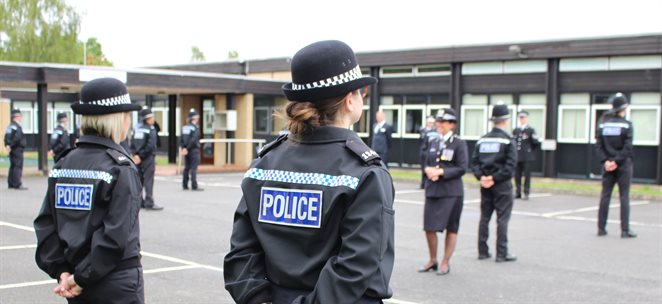
I have a neurodivergent condition – could I be a police officer?
Autism and other neurodivergent conditions are not automatically a bar to being a police officer – each case is judged on its merits as these conditions affect everyone differently. You would typically be asked for a report from your GP or specialist as part of the medical screening process. Autism would be an additional hurdle to overcome during the assessment process and initial training, which are significant challenges in themselves. Many neurotypical people are not cut out for a career in policing.
Ultimately you would need to pass the assessment, training and tutoring stages to become a police officer. Speak to the Recruitment Dept. of the Force you are looking to join – they will be able to advise you and to discuss any reasonable adjustments that could be put in place to make the process as fair as possible for you.
How do I apply?
For more information on joining a regional police force in England or Wales and the entry routes available, visit joiningthepolice.co.uk website (launched as part of the 2019 Home Office police recruitment campaign).
Careers information for national police forces in the UK (not included in the Home Office recruitment programme) can be found on the websites below:
- British Transport Police
- Ministry of Defence Police
- Civil Nuclear Constabulary
- Police Scotland
- Police Service of Northern Ireland
What other police career opportunities are there?
- All police forces employ staff to carry out support roles, for example working in IT, Criminal Justice and the Control Room. A Crime Scene Investigator (also known as a Scenes of Crime Officer) is an example of a uniformed specialised police staff role.
- Police Community Support Officers work in uniform alongside police officers to provide a visible presence in the community and tackle anti-social behaviour. Many police officers start their career as a PCSO – some Forces offer a fast-track application process from PCSO to Police Constable.
- Volunteering as a Special Constable – a good way for a potential full-time officer to see if the role is for them. Specials wear the same uniform and have the same powers as regular officers.
- ‘Ride-alongs’, work experience and job-shadowing placements for potential officers and staff
Contact your local Force for more details (and also bear in mind the national police forces listed above).
What’s it like being a police officer with a neurodivergent condition?
Two of our autistic members – PC Marcus Zost of Hertfordshire Constabulary, and Sergeant Suzanne Burke of the Metropolitan Police – worked with the Police Uplift Programme to produce a video in which they talk about their work as police officers:
Several of our members have written articles and blogs about their experiences – we’ve collated a few here (these can all be found on our Blog and Media Centre pages):
- Autistic Sergeant (Police Scotland)
- Autistic Chief Inspector (Avon & Somerset Police)
- Dyspraxic Inspector (Avon & Somerset Police)
- Dyslexic Detective Sergeant (West Midlands Police)
- Autistic Detective Inspector (West Midlands Police)
- ADHD Sergeant (Ministry of Defence Police)
My child is autistic and is interested in becoming a police officer – what advice can you give?
Social interaction is big part of the role of police officer – however we’ve found that in a professional setting it’s a skill that can often be learned and mastered, which tends to work in favour of those for whom socialising doesn’t come naturally. We’d recommend your child builds their confidence and gets used to working with the public by joining a uniformed cadet scheme such as the Police Cadets, Fire Cadets or St John Ambulance Cadets. They can never start too early!
Police Constable entry routes generally require applicants to have a Level 3 qualification (A levels or equivalent). Your child should focus on preparing for this level of education, as well as having good maths and reading/writing skills. Click on the links above and check police force websites for more information.
